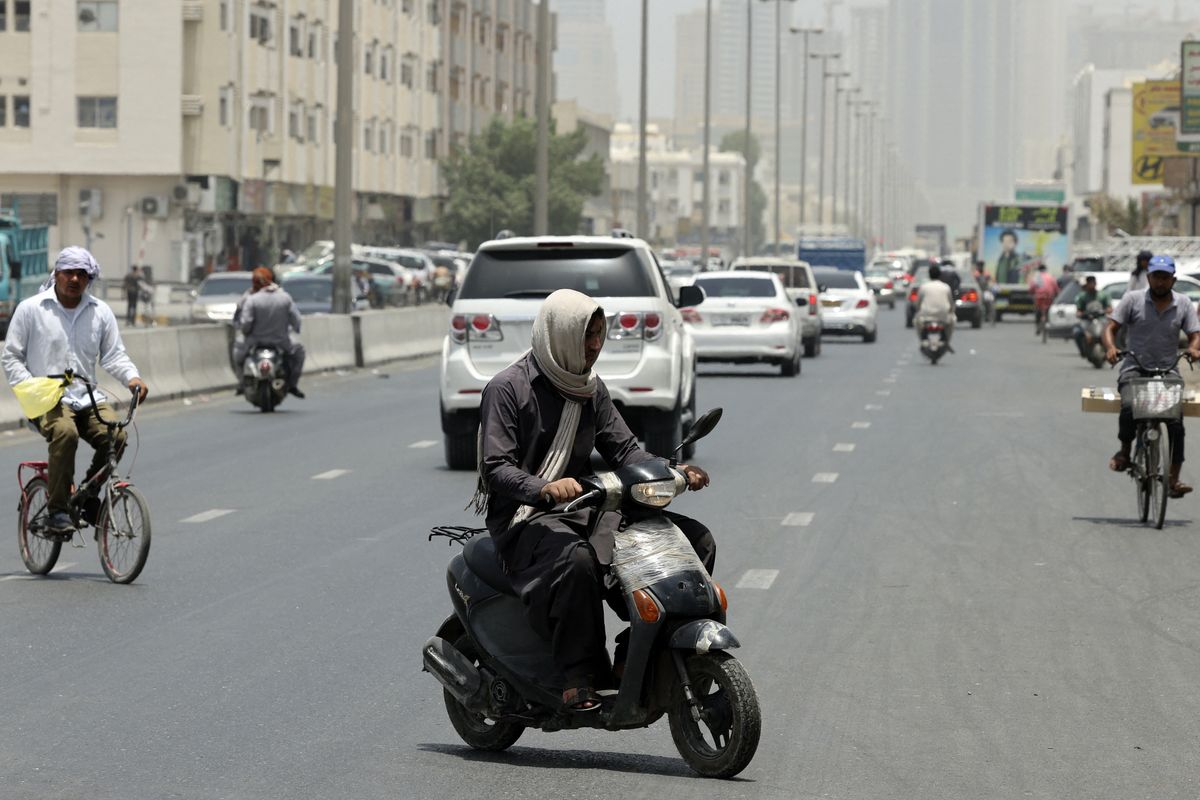News Desk
The News Desk provides timely and factual coverage of national and international events, with an emphasis on accuracy and clarity.

Foreign labourers return to their dormitories after a day of work amid scorching heat, in the Gulf emirate of Sharjah.
AFP
The UAE has recorded its highest-ever May temperature, a scorching 51.6°C (124.9°F) in Al Ain, prompting Abu Dhabi authorities to intensify warnings to parents and motorists, Gulf News reported.
Abu Dhabi Police issued an urgent reminder never to leave children unattended in vehicles, especially during peak summer heat.
Temperatures inside a parked car can rise by as much as 30 degrees Celsius above the outside temperature, making even a short moment deadly for children left inside.
Officials stressed that leaving children alone in locked cars leads to rapid oxygen loss, heatstroke, and possible death within minutes. Children can also accidentally lock themselves inside or tamper with car controls, increasing the risk.
Leaving a child in a locked car is considered neglect under UAE law. The Federal Law on Child Rights, known as the ‘Wadeema Law,’ holds parents and guardians legally responsible.
Under Article 35, violators can face imprisonment and/or a fine of up to Dh5,000 (about USD 1,360). In serious cases where life is endangered, the penalty rises to imprisonment and/or a fine of up to Dh10,000 (about USD 2,720).
In 2024, the Abu Dhabi Early Childhood Authority (ECA) and Abu Dhabi Public Health Centre (ADPHC) jointly released the ‘Safety of Children in Vehicles Guide.’ It urges families to remain vigilant and highlights that heatstroke is the leading cause of non-traffic-related child deaths in vehicles.
Key safety tips from the guide include:
- Always lock cars and store keys out of children’s reach.
- Ensure empty vehicles are locked so children cannot climb in.
- Place a personal item, like a phone or bag, next to the child as a visual reminder.
- If you see a child alone in a car, call 999 (police) or 998 (ambulance) immediately.
- Monitor car interior temperatures often.
- Prioritize removing children from the car before unloading other items.
- Use modern car safety features like child presence detection systems.
Cars heat up fast
In a 2023 experiment by the Sharjah Child Safety Department, titled “Look Before You Lock,” outside temperatures of 40°C to 45°C (104°F to 113°F) caused interior car temperatures to spike by up to 30°C (54°F) within 10 minutes.
Volunteers placed inside the locked car experienced heatstroke symptoms, which include dizziness, fatigue, headaches, nausea, and measurable drops in oxygen levels.
A 2023 Gulf News report explained that as the body sweats to regulate heat, it loses fluids and salts, upsetting the body’s electrochemical balance. This increases heart rate, raises blood pressure, lowers oxygen levels, and can lead to fainting or, in extreme cases, death by suffocation.
Authorities stress that preventing such tragedies is everyone’s responsibility.
“We urge families to stay alert, follow safety guidelines, and never leave children unattended — not even for a minute,” an Abu Dhabi Police official said.










Comments
See what people are discussing